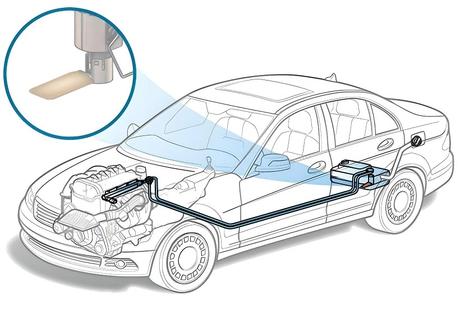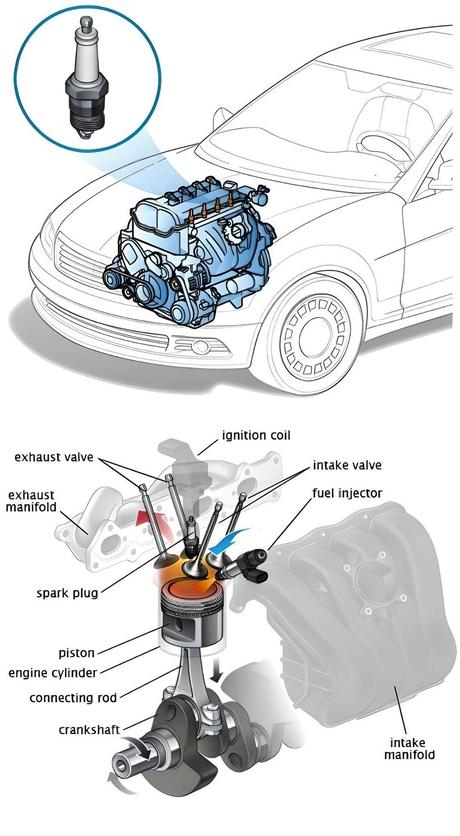
Experiencing jerking when accelerating in your car? Discover the common causes and effective solutions to prevent this frustrating issue.
Smooth cruising is the dream of every driver, but nothing can be more frustrating than experiencing jerks when accelerating. It's not only uncomfortable but also potentially dangerous, especially when you're driving on high-speed roads. If you're tired of dealing with a car that jerks every time you step on the gas pedal, you're not alone. Jerking or hesitation when accelerating is a common problem that affects many vehicles, but it's not something you have to live with. With a few simple tips and tricks, you can prevent your car from jerking and enjoy a smooth and enjoyable ride every time you hit the road. In this article, we'll explore some of the most effective ways to avoid jerking and make your driving experience more pleasant and stress-free. Read on to learn more!
Common Causes of Jerking When Accelerating
If your car jerks when accelerating, there could be several underlying reasons. One of the most common causes is a clogged fuel filter. When the filter is clogged, it restricts fuel flow, which leads to a jerking sensation when you try to accelerate.
Fuel Filter

Another reason could be dirty or worn-out spark plugs. If the spark plugs are not performing optimally, they may not ignite the fuel-air mixture in the engine efficiently, causing the car to jerk.
Spark plug

A faulty throttle position sensor can also cause jerking when accelerating. This sensor is responsible for sending signals to the engine control module, which regulates the amount of fuel and air entering the engine. If the sensor is not working correctly, it may send inaccurate signals, leading to jerking.
Tips for Preventing Car Jerking - Maintenance and Upkeep
Regular maintenance is crucial to keep your car in top condition and prevent jerking when accelerating.
One of the most important things you can do is to change the fuel filter regularly. A clogged fuel filter can cause a lot of problems, including jerking, stalling, and even engine damage. Depending on your car's make and model, you may need to change the fuel filter every 20,000 to 40,000 miles.
Another essential maintenance task is to replace the spark plugs as recommended by the manufacturer. Worn-out or dirty spark plugs can cause misfiring, which leads to jerking when accelerating. You should also check the air filter regularly and replace it if it's dirty. A dirty air filter restricts airflow to the engine, which can cause jerking and other performance issues.
How to Drive Smoothly to Prevent Jerking
Driving smoothly is another effective way to prevent jerking when accelerating. When you're driving, try to avoid sudden starts or stops. Gradual acceleration and deceleration can help keep your car running smoothly. Also, try to maintain a consistent speed when driving on the highway. Avoid heavy braking or sudden lane changes, which can destabilize the car and cause jerking. Smooth driving also reduces wear and tear on your car's components, which can help prevent jerking over time.
Importance of Using the Right Fuel and Oil
Using the right fuel and oil can also prevent jerking when accelerating. Cheap or low-quality fuel can cause deposits to build up in the engine, which can affect performance and cause jerking. Always use the fuel recommended by the manufacturer and avoid filling up at gas stations with a questionable reputation. Using the right oil is also essential. The wrong viscosity or type of oil can affect engine performance and cause jerking. Consult your car's owner's manual to find out the recommended oil type and viscosity for your car.
Signs That Indicate Your Car Needs Maintenance
There are several signs that indicate your car needs maintenance, and ignoring them can lead to jerking and other performance issues. One of the most obvious signs is the "check engine" light. When this light comes on, it means there's a problem with your car's engine or emissions system. Other signs include rough idling, stalling, and decreased fuel efficiency. If you notice any of these signs, it's essential to take your car to a mechanic as soon as possible to diagnose and fix the problem.
Common Mistakes That Cause Jerking When Accelerating
Some common mistakes can cause jerking when accelerating. One of the most common is shifting gears too soon or too late. Every car has a specific RPM range at which it operates most efficiently. Shifting gears outside this range can cause jerking and affect performance. Another mistake is using the wrong gear for the driving conditions. For example, using a high gear for climbing a steep hill can cause the engine to strain, leading to jerking. It's essential to use the right gear for the driving conditions to avoid jerking and damage to your car's components.
Professional Help for Preventing Car Jerking
If you've tried all the tips and tricks mentioned above and your car still jerks when accelerating, it's time to seek professional help. A mechanic can diagnose the problem and recommend the best course of action. Depending on the underlying issue, the mechanic may need to replace certain components, such as the fuel pump or throttle position sensor. In some cases, a simple tune-up may be all that's needed to fix the problem.
FAQs About Car Jerking When Accelerating
Q: Why does my car jerk when I accelerate from a stop?
A: This could be due to several reasons, including a clogged fuel filter, dirty spark plugs, or a faulty throttle position sensor.
Q: Can low-quality fuel cause jerking when accelerating?
A: Yes, low-quality or contaminated fuel can cause deposits to build up in the engine, affecting performance and causing jerking.
Q: How often should I change my car's air filter?
A: It's recommended to change the air filter every 12,000 to 15,000 miles or once a year, whichever comes first.
Q: Can driving on rough roads cause jerking when accelerating?
A: Yes, driving on rough roads can cause the car to vibrate and jerk, especially if the suspension system is worn out.
Conclusion
Jerking when accelerating can be a frustrating and potentially dangerous problem, but it's not something you have to live with. With regular maintenance, smooth driving, and using the right fuel and oil, you can prevent jerking and enjoy a smooth and comfortable ride every time you hit the road. Remember to pay attention to the signs that indicate your car needs maintenance, and don't hesitate to seek professional help if you need it. By following these tips, you can ensure your car runs smoothly and reliably for years to come.



